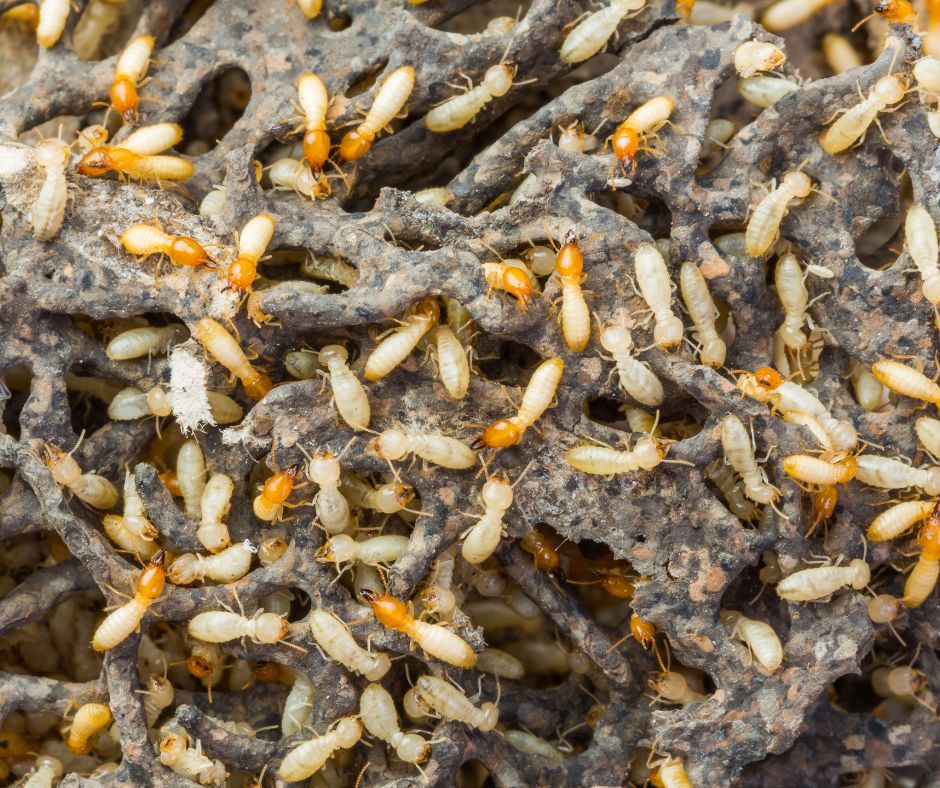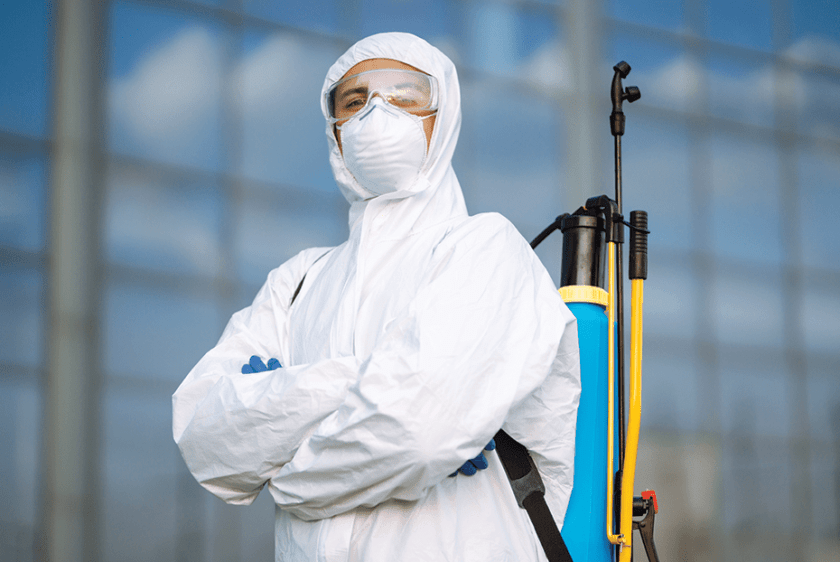Ant Exterminator Near Me: How to Eliminate Ants Quickly and Successfully
Ant Exterminator Near Me: How to Eliminate Ants Quickly and Successfully
Blog Article
Discover the Relevance of Parasite Control in Keeping a Healthy And Balanced Environment and Therapy Techniques

The Role of Parasites in Environments
Bugs, usually checked out entirely as problems, play a diverse role in ecosystems that is important for maintaining environmental balance. They contribute substantially to numerous environmental processes, including pollination, nutrient biking, and pest control. Several insect species, such as butterflies and , are essential pollinators for a large range of plants, which in turn supports biodiversity and food manufacturing.
In addition, pests serve as target for numerous predators, developing an important web link in food webs. This interdependence makes sure the survival of numerous species and helps control populaces within ecosystems (Termite treatment Port Charlotte). Decomposer insects, such as specific beetles and fungi, are critical in damaging down natural issue, therefore improving dirt and promoting vitamins and mineral recycling.
Alternatively, while pests can be advantageous, their overpopulation or intrusion into non-native settings might interfere with these ecological functions. This complexity underscores the importance of understanding pest characteristics, as efficient parasite administration techniques need to take into consideration both their environmental functions and possible influences on human tasks. Stabilizing pest existence while minimizing harm is important for maintaining the integrity of ecosystems and ensuring agricultural performance.
Health Risks Connected With Parasites
The presence of pests in various settings prolongs past their eco-friendly duties, as they also position substantial wellness dangers to pets and human beings. Lots of insects, including parasites, rats, and bugs, are service providers of conditions that can have serious health and wellness ramifications. For example, rats are recognized to transmit hantavirus and leptospirosis, both of which can cause extreme breathing and renal issues, respectively.
Insects such as ticks and mosquitoes are notorious for spreading vector-borne conditions like malaria, dengue fever, and Lyme condition. These health problems can cause high morbidity and death rates, particularly in vulnerable populations. Additionally, insects like cockroaches and insects can exacerbate allergic reactions and asthma, contributing to breathing issues in individuals, particularly those with pre-existing problems.
In addition, the visibility of bugs can cause mental stress and pain, affecting total well-being. Contamination of food and surface areas by bug droppings and remains can result in foodborne ailments, highlighting the value of maintaining sanitary conditions. Consequently, recognizing the health threats related to insects is essential in acknowledging the need of reliable insect administration techniques to guard human and animal wellness.

Advantages of Effective Insect Control
Effective insect control is necessary for preserving a safe and healthy setting, as it constantly alleviates the various risks linked with parasite invasions. One of the primary benefits of reliable bug management is the decrease of wellness risks.
Additionally, reliable parasite control safeguards property and structures from damage. Several bugs, like termites and carpenter ants, can trigger extensive structural damage that might call for pricey fixings. By proactively taking care of these property owners, infestations and organizations can shield their investments.
An additional significant benefit is the renovation of overall lifestyle. A pest-free environment contributes to psychological health and minimizes stress and anxiety related to problems. Efficient insect control cultivates a safer environment for kids and family pets, ensuring that homes remain shelters complimentary from harmful chemicals and disease-causing organisms.
Common Insect Control Techniques

In the world of bug administration, various strategies are utilized to fight infestations properly. These methods can be broadly classified right into 3 primary approaches: social, mechanical, and chemical controls.
Cultural control involves customizing practices to lower bug reproduction, survival, and facility. This might consist of crop turning, appropriate hygiene, and habitat adjustment, which collectively develop an atmosphere much less favorable to pest spreading.
Mechanical control employs physical techniques to remove pests (Termite treatment Port Charlotte). Methods such as catches, obstacles, and vacuum cleaners are commonly used to directly eliminate bugs from a location. This strategy is specifically effective for managing rodents and insects without the use of dangerous chemicals
Chemical control entails the application of chemicals to take care of insects. These substances can be classified into herbicides, fungicides, and pesticides, each targeting particular kinds of parasites. It is essential to make use of these chemicals deliberately, adhering to safety and security guidelines and policies to reduce prospective harm to non-target varieties and the environment.
Each bug control strategy has its benefits and constraints, and often, an integrated approach integrating several methods yields the very best lead to preserving a pest-free atmosphere.
Lasting Bug Monitoring Practices
Sustainable insect administration practices encompass a series of methods developed to lessen ecological impact while properly managing bug populations. These practices focus on using eco friendly approaches over chemical pesticides, thereby minimizing the danger of damage to non-target varieties, including helpful bugs, wildlife, and people.
Integrated Pest Administration (IPM) is a foundation of lasting practices, integrating biological, cultural, mechanical, and chemical strategies to handle insects. Organic control entails introducing natural predators or parasites to suppress parasite populations. Social techniques, such as crop turning and polyculture, disrupt pest life cycles and boost website here community strength.
Mechanical techniques, such as obstacles or catches, can efficiently protect against pest gain access to without chemical treatment. Additionally, maintaining healthy and balanced ecological communities through appropriate dirt monitoring, plant health, and biodiversity can naturally reduce insect concerns.
Education and awareness are essential components, empowering individuals and communities to identify parasite threats early and execute preventative steps. Termite treatment Port Charlotte. By cultivating an all natural strategy that stabilizes pest control with ecological integrity, sustainable pest management practices not only protect structures and crops but also add to a much healthier setting for future generations
Verdict

Recognizing the health and wellness dangers associated with parasites is critical in acknowledging the necessity of reliable bug administration strategies to guard animal and human health.
Reliable bug control is important for keeping a secure and healthy environment, as it constantly reduces the countless dangers linked with pest infestations.Integrated Bug Management (IPM) is a keystone of sustainable methods, combining organic, cultural, mechanical, and chemical techniques to manage bugs. By understanding the role of pests, acknowledging involved health dangers, and employing diverse therapy techniques, a sustainable strategy to pest management can be attained. Integrated helpful resources Pest Administration (IPM) stresses an all natural methodology that alleviates injury to advantageous microorganisms while effectively managing bug populaces.
Report this page